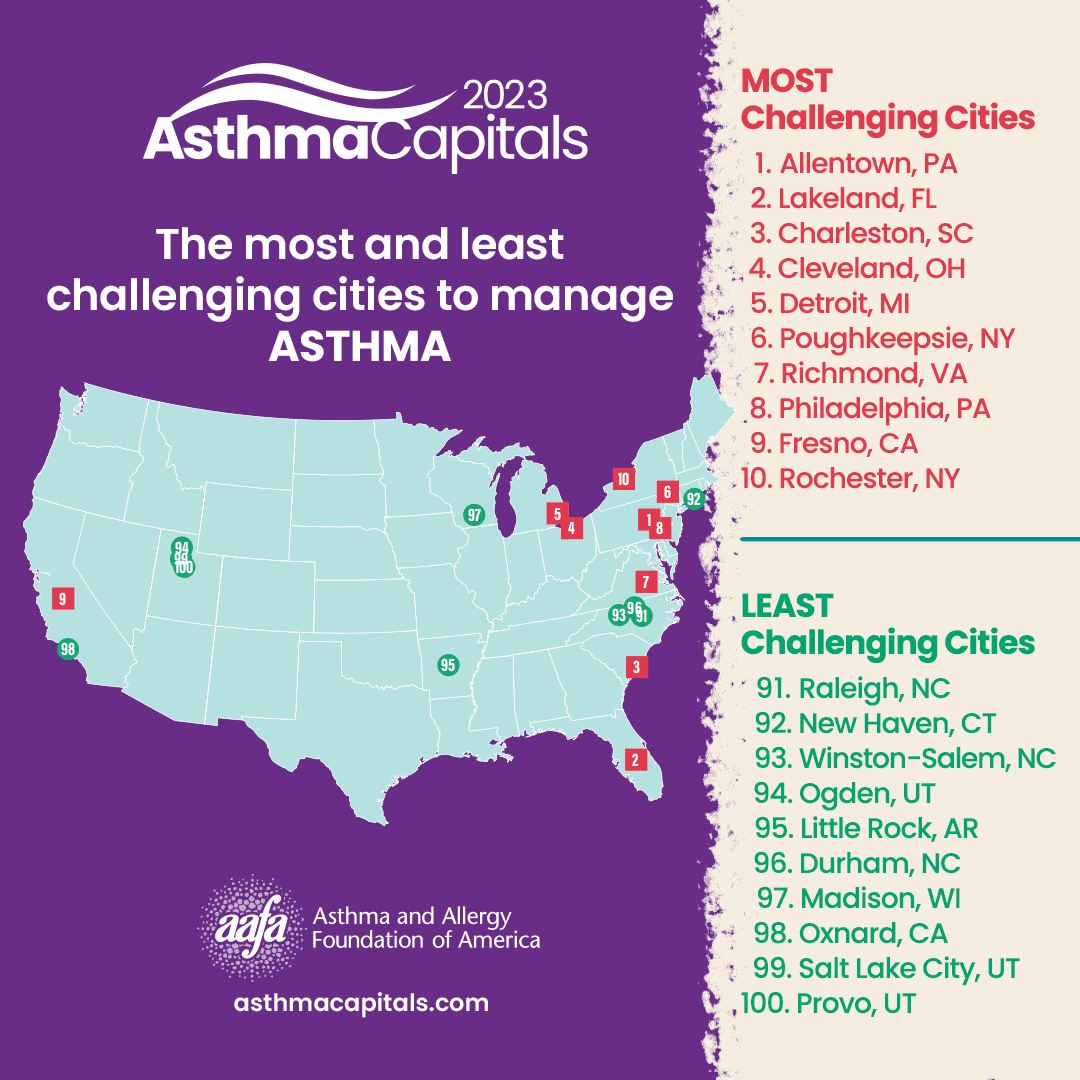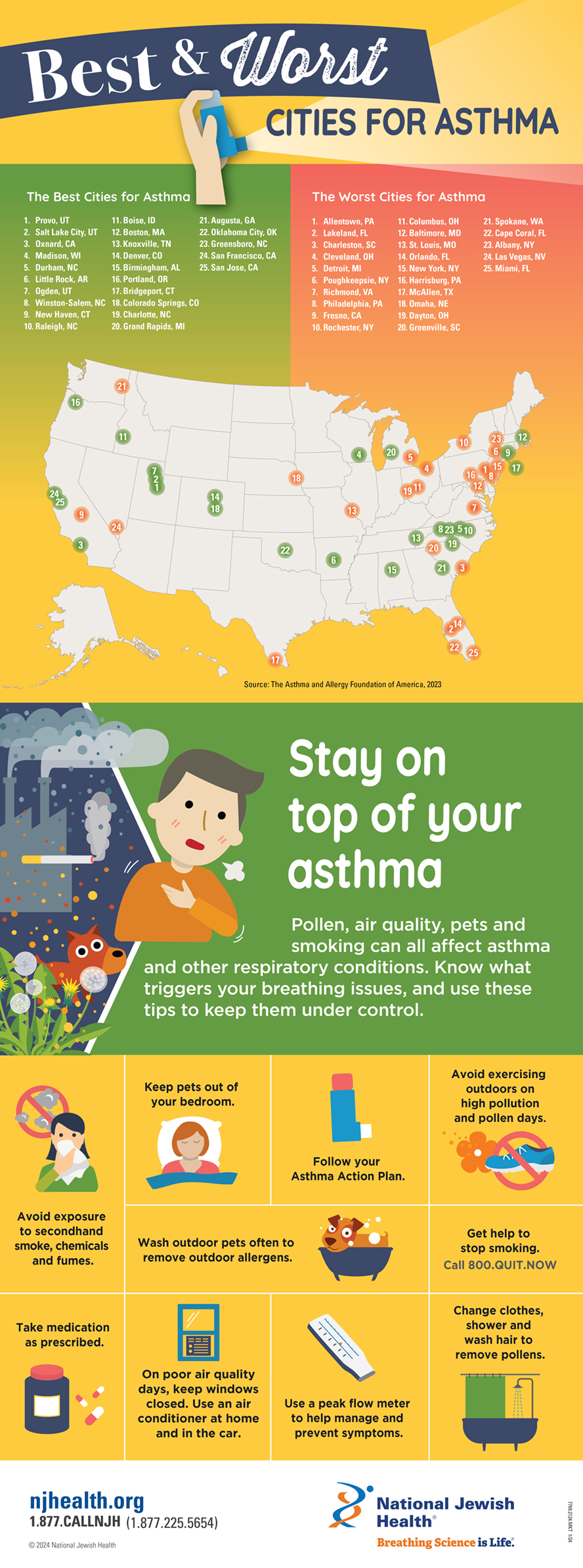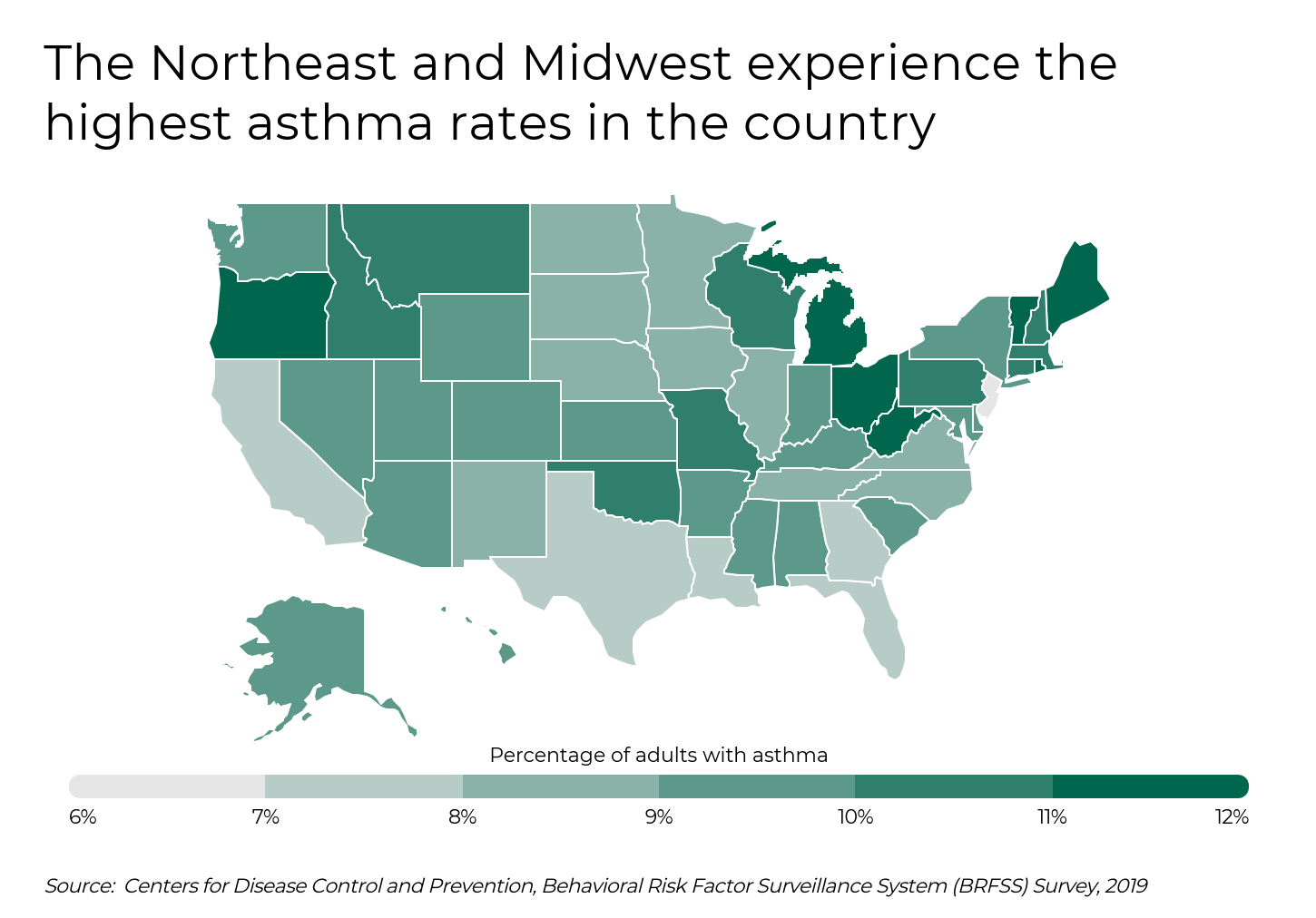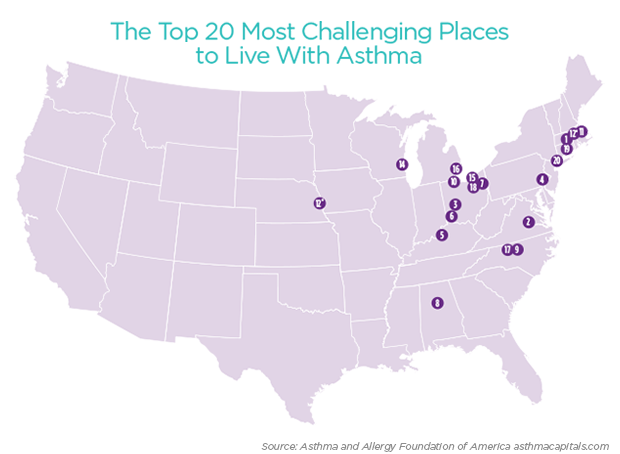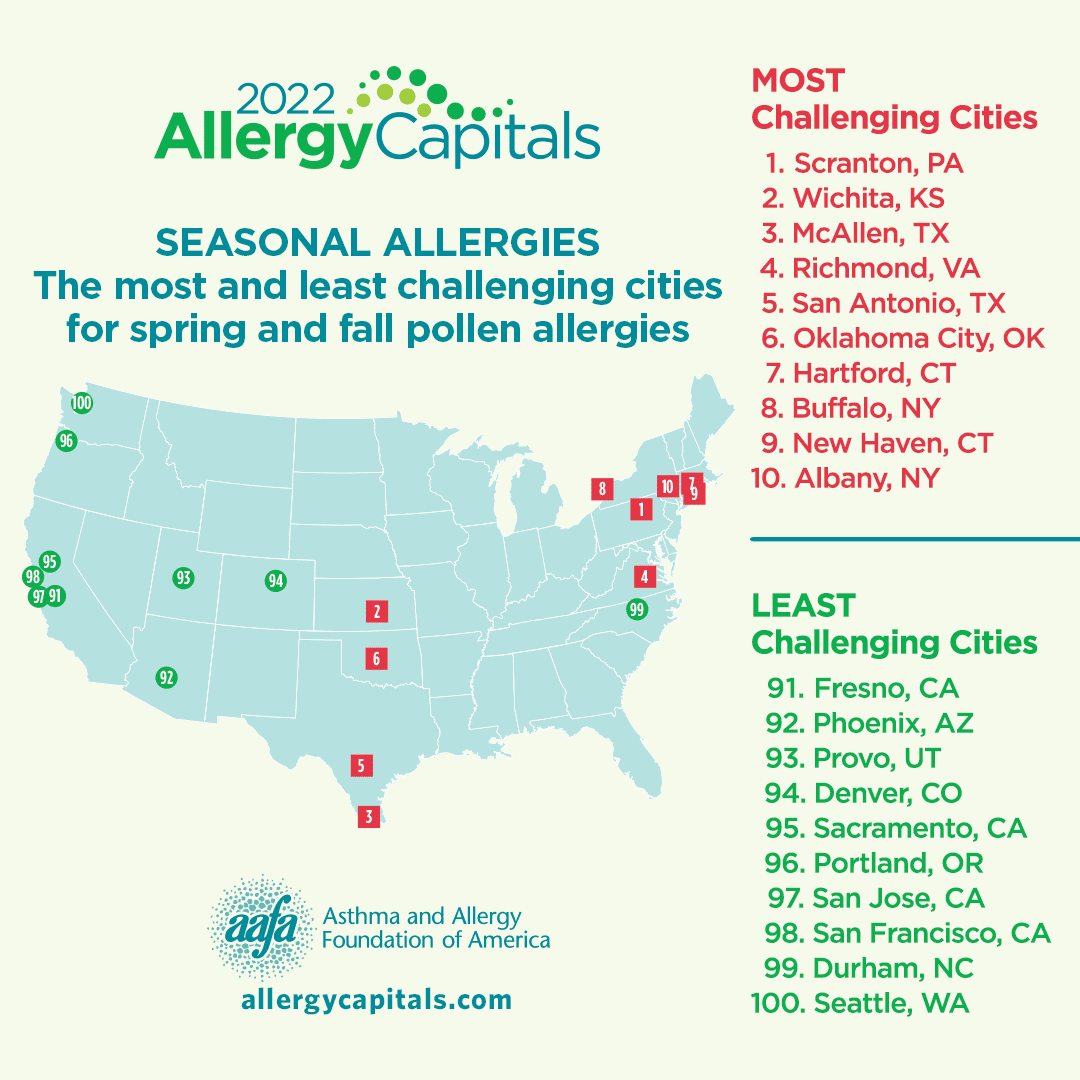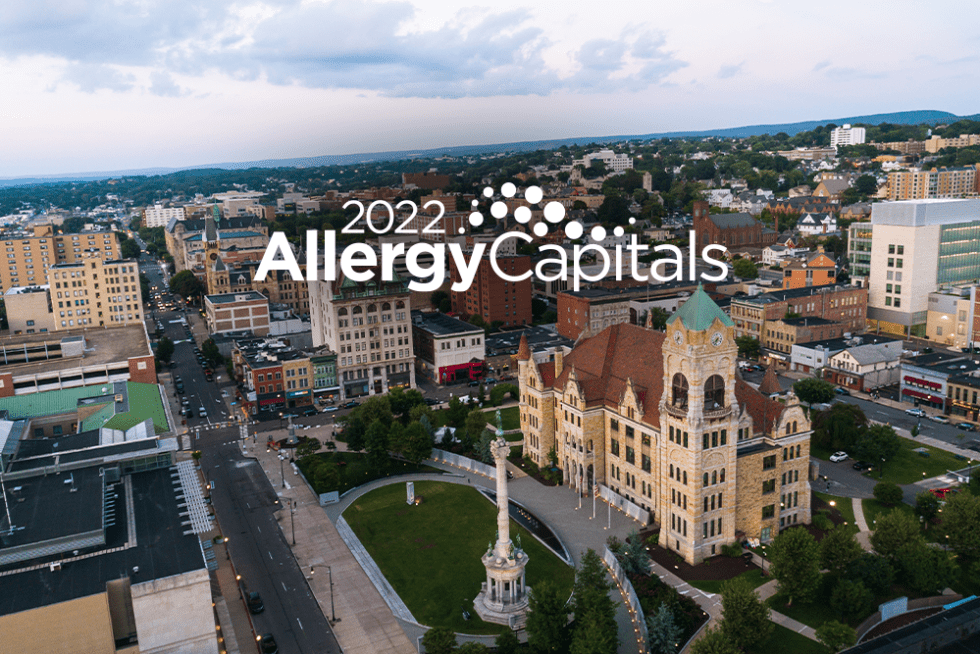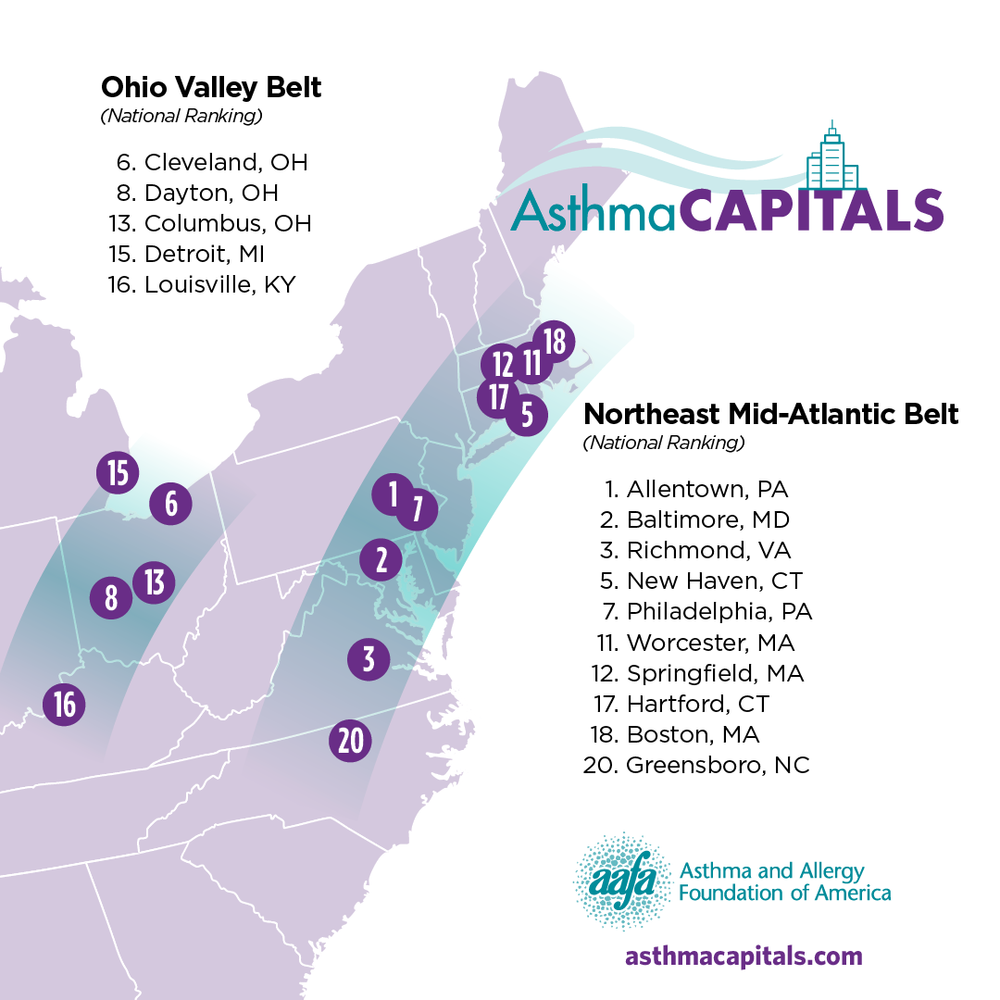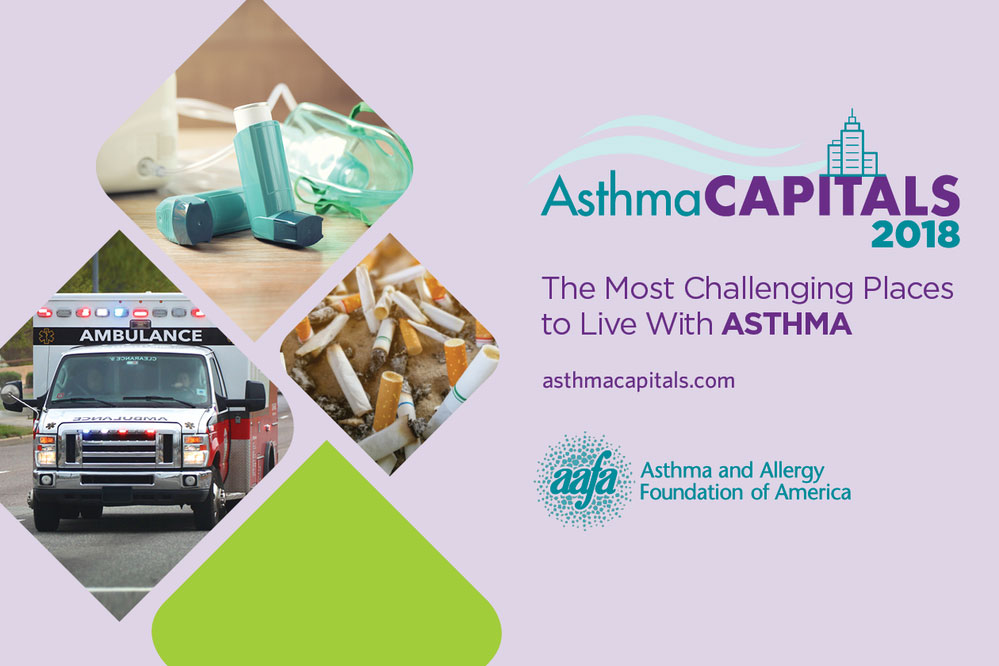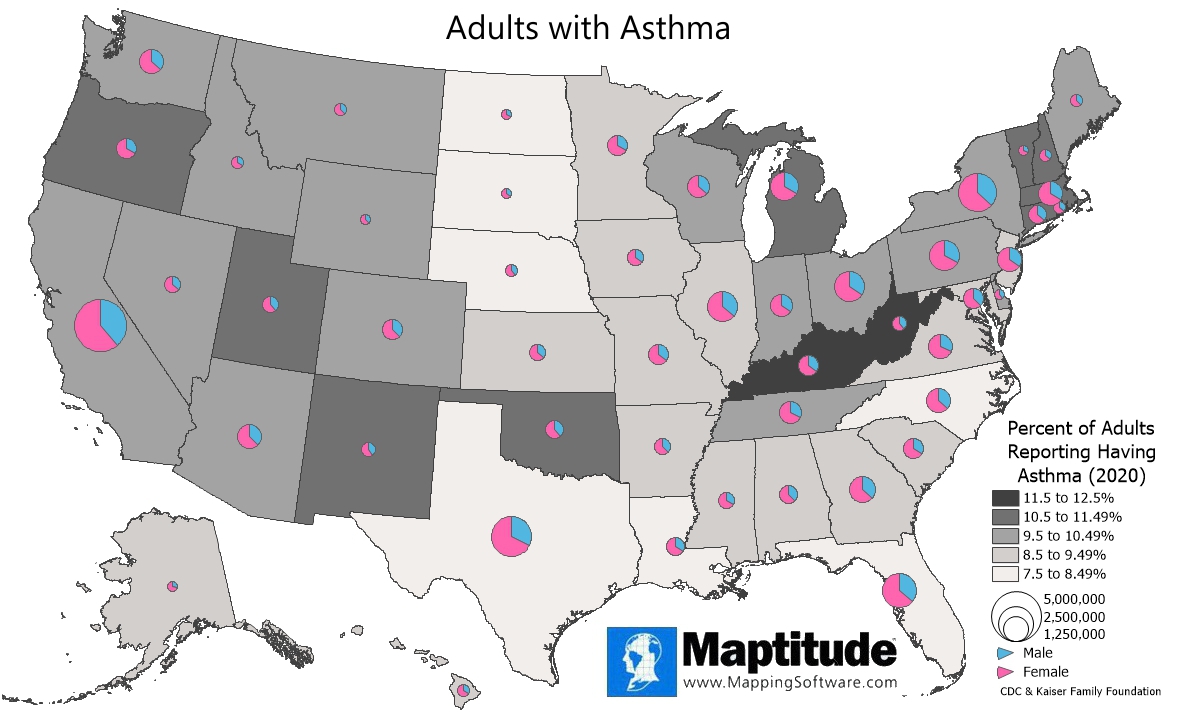Best Cities To Live With Asthma
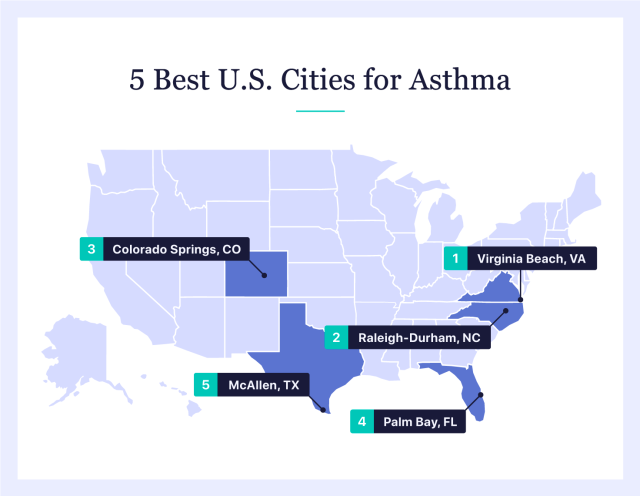
Imagine gasping for air, the simple act of breathing turning into a daily struggle. For the over 25 million Americans living with asthma, this is not a hypothetical scenario but a harsh reality. The environment plays a crucial role in managing this chronic respiratory disease, making the choice of where to live a significant health decision.
This article delves into the complex factors that contribute to asthma severity and identifies cities that offer a more breathable environment for those affected. We will examine air quality data, pollen counts, access to healthcare, and other critical variables to determine the best and worst places to call home when living with asthma.
Understanding Asthma and Environmental Triggers
Asthma is a chronic inflammatory disease of the airways that causes recurrent episodes of wheezing, breathlessness, chest tightness, and coughing. While there is no cure, asthma can be effectively managed with medication and by avoiding environmental triggers.
These triggers vary from person to person but often include allergens like pollen, dust mites, mold, and pet dander. Air pollution, including particulate matter and ozone, as well as irritants such as smoke and strong odors, can also exacerbate asthma symptoms. Understanding these triggers is the first step in mitigating their impact.
The Role of Air Quality
Air quality is arguably the most important environmental factor for individuals with asthma. Cities with high levels of air pollution, particularly those exceeding the Environmental Protection Agency's (EPA) standards, can significantly worsen asthma symptoms.
Data from the EPA and organizations like the American Lung Association are crucial in assessing the air quality of different cities. These organizations track pollutants like ozone and particulate matter, providing detailed reports on air quality trends.
Pollen and Allergens
For many asthma sufferers, seasonal allergies triggered by pollen are a major concern. The timing and intensity of pollen seasons vary greatly depending on geographic location and climate.
Cities with long, intense pollen seasons, particularly those dominated by highly allergenic plants like ragweed, can be particularly challenging for individuals with asthma. Regularly checking pollen forecasts is an important step in managing exposure.
Best Cities for Asthma Sufferers
Several cities across the United States consistently rank high in terms of asthma-friendliness. These cities typically boast clean air, lower pollen counts, and excellent access to healthcare.
Honolulu, Hawaii, often tops the list due to its consistently clean air and relatively low pollen levels. The island environment and ocean breezes help to keep pollutants at bay.
Albuquerque, New Mexico, is another good option, often recognized for its proactive approach to air quality management and its generally dry climate, which inhibits the growth of mold and dust mites.
Colorado Springs, Colorado, benefits from its high altitude and dry climate, which helps to minimize allergens and air pollution. The city also boasts a strong healthcare system.
Worst Cities for Asthma Sufferers
Conversely, some cities pose significant challenges for individuals with asthma. These cities often struggle with high levels of air pollution, intense pollen seasons, or a combination of both.
Fresno, California, frequently appears on the list of worst cities due to its high levels of particulate matter pollution, stemming from agricultural activities and vehicle emissions. The region's warm climate also contributes to prolonged pollen seasons.
Bakersfield, California, shares similar challenges with Fresno, experiencing significant air pollution from agriculture and transportation. The San Joaquin Valley, where both cities are located, is particularly prone to air inversions that trap pollutants.
Philadelphia, Pennsylvania, presents a mixed bag, struggling with both air pollution and pollen. The city's dense population and industrial history contribute to poor air quality, while its location makes it susceptible to ragweed and other allergens.
Beyond Location: Lifestyle and Healthcare
Choosing the right city is only one piece of the puzzle. Maintaining a healthy lifestyle and having access to quality healthcare are also crucial for managing asthma.
Regular exercise, a balanced diet, and stress management can all play a significant role in improving asthma control. Equally important is access to knowledgeable physicians, pulmonologists, and comprehensive asthma management programs.
Telehealth options have also expanded access to care, particularly in rural areas or for individuals with mobility limitations. These virtual consultations can provide valuable support and guidance for managing asthma symptoms.
Looking Ahead: Improving Asthma Outcomes
Efforts to improve air quality and reduce allergen exposure are ongoing at both the local and national levels. Initiatives like the EPA's Clean Air Act have played a significant role in reducing pollution and improving public health.
Technological advancements are also providing new tools for monitoring air quality and pollen levels. Real-time air quality sensors and pollen tracking apps empower individuals to make informed decisions about their activities and exposure risks.
Ultimately, managing asthma requires a multi-faceted approach. By understanding environmental triggers, choosing a supportive location, and prioritizing healthy lifestyle choices, individuals with asthma can live full and active lives. Staying informed and advocating for cleaner air is key to creating a more breathable future for everyone.
